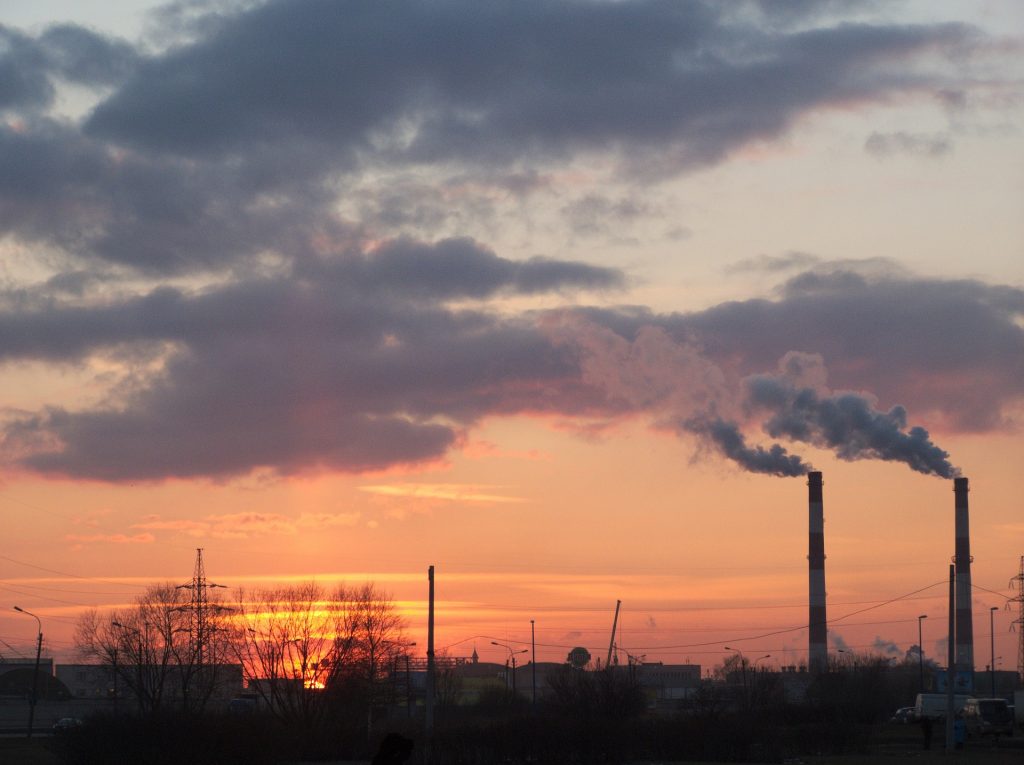The overall impact of climate change on economic growth will most likely be negative in the long run.

Even though climate change affects or will affect different countries differently, precisely the anticipated changes will be greater at higher latitudes. The poorest countries of global are suffering from severe consequences on economic growth and political dislocation, their already precarious ability to sustain human life will be tipped over the edge or lacking resources making them relatively resilient.
I live in Pakistan that is among the six most affected countries of the world by global warming not by its parlous greenhouse gas emissions but by poor legislation and lack of investments in mitigating climatic changes. Where decades of felling and natural disasters have curtailed its forests. It has one of the lowest levels of forest cover range between around 2% and 5% of land area and well below 12% recommended by the UN. Hence, we need economic and political change for an effective response to climate change. For this we have been started a billion tress tsunami in 2014 in Khyber Pakhtunkhwa, massive reforestation project-inculcated 350,000 hectares of trees both by planting and natural regeneration that has a cost of $169 million, to restore province’s forests and combat the climate change.
Pakistan comprises of lower and upper Indus basin and exceptionally its northern or low lying areas are drastically afflicted by landslides and flooding. Now the implementation of greener policy by the federal government has been done, its goal is to plant 100 million trees in five years across the country.
It is not a forecast anymore, temperatures of various regions of the earth are reaching a new high, airflow, rainfall and snow patterns are shifting and more extreme events such as flooding and drought are taking place. Greenhouse gases are escalating global warming. Scientists have found that 81.2% of energy consumption in the world is produced by fossil fuel. Since we are headed towards a catastrophic level of warming, to deal with it we have to fight for a change in the economic model of capitalism and move towards a low carbon economy. Making these adjustments will inevitably create risks but also opportunities. There will be both winners and losers from climate change at different levels of warming.
According to the report of scientists at NASA’s Goddard Institute for Space Studies (GISS), the average global temperature of earth has increased by 0.8° Celsius since 1880. Heating of earth caused by ultraviolet radiation reflecting between the ozone layer and earth surface that are entrapped inside a glass sheet of greenhouse gases, methane, and carbon dioxide, which solely spawn by human activities such as deforestation for installing industries, urbanization, coal utilization for energy production. These circumstances not merely affect us but also induce other plants and animals extinction, mega-blazes or drought due to human stubbornness is inadmissible.
Our society often overlooks that current projects are not always obligatory benefiting us. Thus, the issue of global climate change must be addressed properly to policymakers and public otherwise it will create colossal economic challenges involving huge price tags on the global economy and trade-offs. Furthermore, it is indispensable for countries around the world to put their attentions on cooperating and proposing international policies that will bolster the aim of protecting the environment and limiting the impact of climate change on our movement, agriculture productivity, health, air quality and average temperatures by focusing on sustainable initiatives and concoct plans that will surely cut greenhouse gas emission globally.
In the past, among the most developed nations, the United States had refused to sign the 1992 Kyoto Protocol on minimizing greenhouse gas emissions. After that the calamitous consequences of climate change enforced the United States to spearhead the dialogue on climate change but until now the US is still facing trouble in convincing other nations on board. Solemnly, we as a society cannot continue on this path of not signing international agreements and treaties if we want to sincerely work with international community to limit greenhouse gas as an effective response to climate change. It needs to be tackled by denizens of countries while envisaging themselves as ‘’global citizens” rather than separate entities if any bona fide long-term progress is to be made. In conformance with a global perspective, countries are in continuous efforts to poise legislation concerning climate change in a way that comforts developing nations while desisting from discouraging developed nations from contributing to the effort.
Despite overwhelming odds, a landmark agreement was reached by 195 countries in 2015 to limit global fossil fuel emissions and strive to mitigate the effects of global warming. Later on, it was signed by the majority of countries but still needs ratification by some countries for the general good of society. Efficient cities predominantly deliver ungraded economy and environmental performance by managing their carbon dioxide and methane output through a carbon tax or fewer emissions.
Governments around the world should subsidize clean energy more than fossil fuels, some about 700 billion dollars. To flourish the market of energy, reforms will entail costs and trade-offs and often require governments to cope with strenuous problems of political economy and distribution. Transforming energy infrastructure may be more economical than expected or else if we follow a low-carbon path. The world leaders must need to take action in the coming years to halt the creation of new coal power plants, deforestation of natural forests in the developed world and by 2025 in middle-income countries. Advancements in environmental energy or research measures should be done by promising strict international economic and political policies that induce tremendous progress in renewable energy. Restoration of just 12 % of agriculture could feed 200 million people and if prices of solar energy must be cheaper than fossil fuel in the coming years would cause a natural shift in investment even without government intervention.